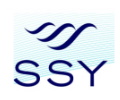“Social Dialogue for Ports is more than “ticking boxes” in the framework of EU consultations”

End of October 2020, in a letter sent to Commissioners Schmidt, Valean and Vestager, the social partners of the European Sectoral Social Dialogue Committee for Ports, ETF, FEPORT, ESPO and IDC expressed their disappointment and frustration with respect to the lack of support and responsiveness from the Commission on several key topics for the port sector.
The social partners called for a more meaningful dialogue with the Commission. Recent evolutions in the maritime sector having a huge impact on ports call indeed for a serious attention from EU institutions and more particularly from the EU Commission’s services.
Supporting or assisting the sectoral Social Dialogue at EU level requires more than listening or taking note. In this context, it is worth mentioning that social partners have alerted the EU Commission about the situation that prevails within the maritime logistics chain as a result of the lasting joint withdrawal of maritime capacities by major liner shipping lines.
The effects of the low schedule reliability are cascading down and disrupting not only the organization of ports and terminals but also customers’ and other actors’ of the supply chain. Social partners deplore that these developments have not been followed-up by the EU Commission.
The current COVID-19 crisis has been qualified by all EU and national leaders as a serious ordeal that requires action. All have proclaimed that policy makers and public authorities must be receptive and pay careful attention to the impacts of the crisis on industries and people.
ETF, FEPORT, ESPO and IDC cannot be reasonably satisfied by the EU Commission’s invitation to reply to consultations to express their views. While being useful, consultations cannot constitute a reliable and insightful barometer regarding the situation that prevails in the market and the difficulties faced by EU port businesses and workers. More active dialogue and a real follow-up of ongoing developments is necessary from the EU Commission’s services for the EU Social Dialogue to be a success.
The above-mentioned organizations have engaged in the Sectoral Social Dialogue for ports because they believed that the platform would be a place for real debates with the EU Commission on crucial topics. They never considered the Sectoral Social Dialogue as a fake or cosmetic exercise.
While remaining faithful to their commitment, and until the social dialogue resumes, the social partners will carry on their work bilaterally through technical expert groups on the agreed work programme and on important issues such as health and safety of port workers where the EU Commission has since the start of the discussions in 2014 not been able to provide more effective support to find a solution to such a serious problem.
Port stakeholders, like their colleagues of the transport sector, have demonstrated their sense of responsibility and dedication during the COVID-19 crisis and will continue to deploy efforts to ensure the continuity of work and the supply of goods to customers.
ETF, FEPORT, ESPO and IDC reiterate their invitation to the EU Commission to initiate a thorough discussion about the future of the EU Sectoral Social Dialogue for Ports.
Source: Joint Statement by IDC-FEPORT-ETF-ESPO

 Hellenic Shipping News Worldwide Hellenic Shipping News Worldwide, Online Daily Newspaper on Hellenic and International Shipping
Hellenic Shipping News Worldwide Hellenic Shipping News Worldwide, Online Daily Newspaper on Hellenic and International Shipping





















 PG-Software
PG-Software